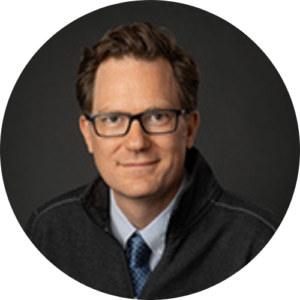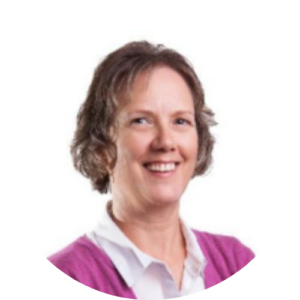This session will focus on construction-based solutions for building wildland fire resilient homes in British Columbia. Experts from RDH Building Sciences, FireSmart Canada, Natural Resources Canada, and others in the field will talk about measures that can be taken to reduce the damage from wildland fires on the built environment. We will explore options for how to incorporate non-combustible building materials, envelope details, fire-rated wall assemblies, and exterior mitigation measures into Part 9 housing construction.
There will be 3 technical presentations:
1) Envelope details and materials: Addressing points of entry from the exterior of the home where embers can penetrate the structure, and the substitution of combustible building materials for non-combustible ones.
2) Constructing a 1-hr fire-rated wall assembly: Looking at the different solutions and materials that can be incorporated into a wall assembly to achieve a 1-hr fire-rating, including soffits and windows.
And 3) Measures that can be taken outside of the house to improve wildland fire resilience for the structure.
A series of infographics and guides, created by NRCan, will be highlighted throughout the event. Participants will receive access to these resources to support the implementation of wildland fire resilient construction measures.
Speaker Bios:
FireSmart Canada
 Scott Vandermeer | Owner | VDM Fire Inc.
Scott Vandermeer | Owner | VDM Fire Inc.
Scott VanderMeer has been collaborating with the developer of the Exshaw Mountain Gateway project on behalf of FireSmart Canada with the goal of integrating FireSmart Development Best Practices into the architectural and landscape guidelines set out by the developer. This proactive approach to FireSmart has led to the national discussion on the creation of a FireSmart Developer Recognition Program. Scott VanderMeer has been involved in numerous FireSmart projects and continues to be an active member on FireSmart Canada’s Technical Committee and FireSmart Canada’s Program Implementation Working Group. While continuing as an active member of the Calgary Fire Department, Scott combines his structural fire knowledge, along with former wildfire experience to provide advice on wildland urban interface education and mitigation.
Institute for Catastrophic Loss Reduction (ICLR)
 Dan Sandink | Director of Research
Dan Sandink | Director of Research
Dan Sandink is the Director of Research at the Institute for Catastrophic Loss Reduction. Since joining ICLR, Dan has authored or co-authored more than 50 technical reports and articles on topics related to protecting Canadians and their property from the impacts of extreme rainfall/urban flooding, high wind, wildland-urban interface fire, and hail. Dan’s writing has also focused on public disaster risk perceptions, public adoption of household disaster risk reduction practices, the role of insurance in managing disasters, climate change adaptation and vulnerability assessment, building materials and products designed to mitigate disaster risk at the household level, among many other topics.
Natural Resources Canada (NRCan)
 Lucas Coletta | Project Leader | LEEP – CanmetENERGY
Lucas Coletta | Project Leader | LEEP – CanmetENERGY
Lucas Coletta is a project leader with the Natural Resources Canada’s (NRCan) Local Energy Efficiency Partnerships (LEEP) Team. His primary focus is the technical development and industry adoption of the NRCan cost benefit analysis tool (CBAT). He develops technical resources aimed at addressing the affordability and construction of energy efficient homes across Canada. Lucas and the LEEP team work with industry to bring energy advisors, home builders, and policy makers together to trial CBAT, assess its usefulness, and capture suggestions for future development.
RDH Building Science
 James Bourget, ABET, RRO®, CPHT
James Bourget, ABET, RRO®, CPHT
James has over 30 years of industry experience, specializing in condition assessments, design and detail development, and field review on Existing Buildings projects. As an approved roof inspector with the Roofing Contractors Association of British Columbia, James has developed expertise in the investigation, design, and field review of complex and specialty roof renewal and replacement projects. Over the years, he has established a multifaceted skill set and familiarity with various trades’ practices, including masonry, carpentry, concrete finishing, painting, and plastering. As part of an initiative to support the implementation of the BC Step Code, James delivers hands-on airtightness training to builders and contractors. He also shares his knowledge of the building enclosure as an instructor at the British Columbia Institute of Technology.
 Graham Finch, Dipl.T., M.A.Sc., P.Eng.
Graham Finch, Dipl.T., M.A.Sc., P.Eng.
Graham is an industry leader in measuring, evaluating, and modeling of the thermal and hygrothermal performance of building enclosure systems. His master’s degree research and thesis focused on the in-service performance of rainscreen wall assemblies in the Pacific Northwest, and the research has resulted in several publications and practical recommendations for the construction industry. He is a leader in knowledge sharing and is regularly invited to present at conferences and speaking opportunities around North America on a range of building science topics. He also contributes to the education of the industry through the development and delivery of best practice guidelines and bulletins.
 Robin Urquhart, MBSc., CEA
Robin Urquhart, MBSc., CEA
Robin has over 15 years of relevant experience and specializes Northern construction projects, energy efficient design, building guide development, wildfire resistant construction and radon mitigation He provides services in project management, building enclosure design, investigation, diagnostic and whole building air tightness testing, construction field review, forensic enclosure investigation, detail design review, and condition assessments. With a background in carpentry and as a certified energy advisor, he is committed to the North and ensuring that buildings are built to perform well and stand the test of time.

 Scott Vandermeer | Owner | VDM Fire Inc.
Scott Vandermeer | Owner | VDM Fire Inc. Dan Sandink | Director of Research
Dan Sandink | Director of Research Lucas Coletta | Project Leader | LEEP – CanmetENERGY
Lucas Coletta | Project Leader | LEEP – CanmetENERGY James Bourget, ABET, RRO®, CPHT
James Bourget, ABET, RRO®, CPHT Graham Finch, Dipl.T., M.A.Sc., P.Eng.
Graham Finch, Dipl.T., M.A.Sc., P.Eng. Robin Urquhart, MBSc., CEA
Robin Urquhart, MBSc., CEA Allison Chen, P.Eng., P.E. | Manager, Built Environment and Seismic Initiatives | Engineers and Geoscientists British Columbia (EGBC)
Allison Chen, P.Eng., P.E. | Manager, Built Environment and Seismic Initiatives | Engineers and Geoscientists British Columbia (EGBC) Thomas Leung, P.Eng., Struct.Eng., FEC, MIStructE | TLSE Engineering Inc.
Thomas Leung, P.Eng., Struct.Eng., FEC, MIStructE | TLSE Engineering Inc. Jessica Shoubridge, MAP | Founder & Principal | Thrive Consulting
Jessica Shoubridge, MAP | Founder & Principal | Thrive Consulting Todd Backus, P.Eng. | Manager – Programs Development | TECA
Todd Backus, P.Eng. | Manager – Programs Development | TECA Emily Wilkerson, MA, RPCA | Director – Archaeology | Transportation Investment Corporation
Emily Wilkerson, MA, RPCA | Director – Archaeology | Transportation Investment Corporation Chris Walsh | Instructor | Heating, Refrigeration and Air Conditioning Institute of Canada (HRAI)
Chris Walsh | Instructor | Heating, Refrigeration and Air Conditioning Institute of Canada (HRAI)
 Lucas Genereux, AScT | GHL Consultants Ltd.
Lucas Genereux, AScT | GHL Consultants Ltd.
 Conrad Speckert | Intern Architect, BAS, M.Arch | LGA Architectural Partners Toronto
Conrad Speckert | Intern Architect, BAS, M.Arch | LGA Architectural Partners Toronto Trevor Welsh, RBO, CRBO |
Trevor Welsh, RBO, CRBO |